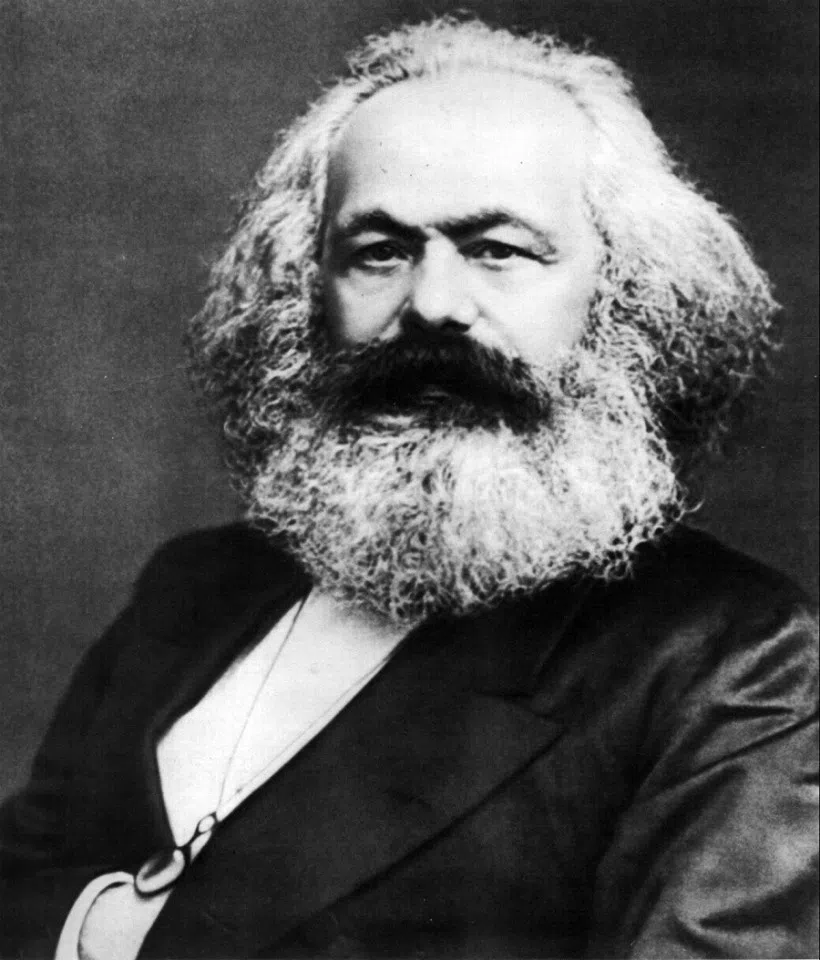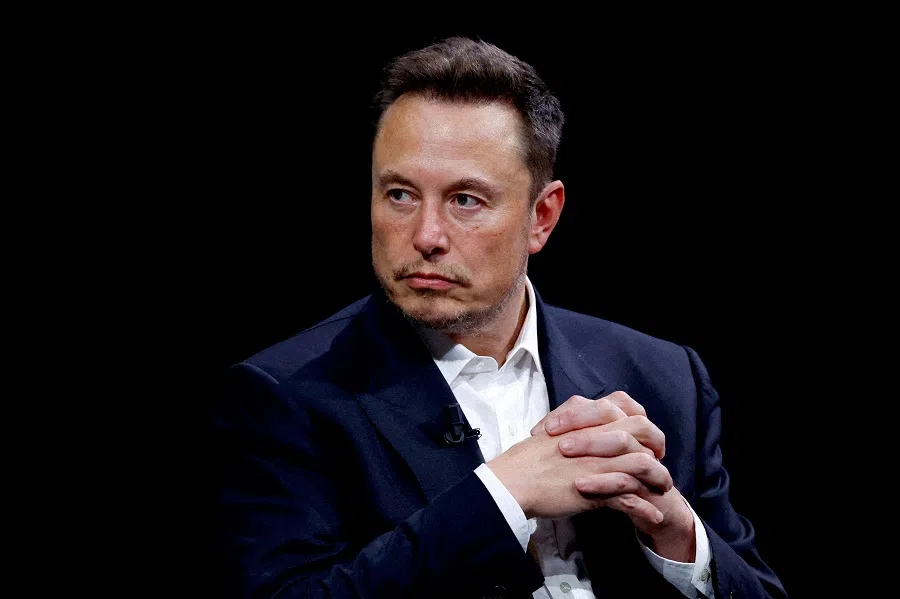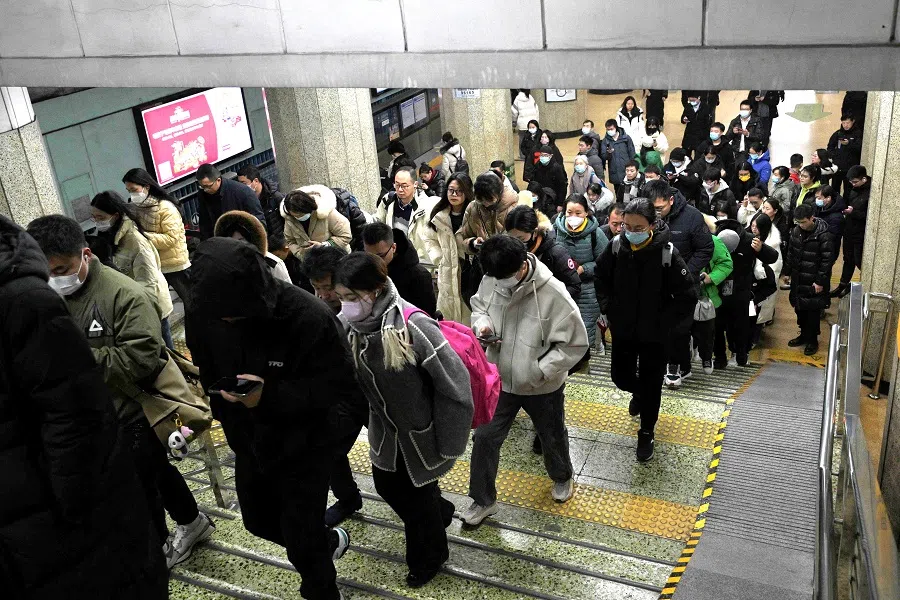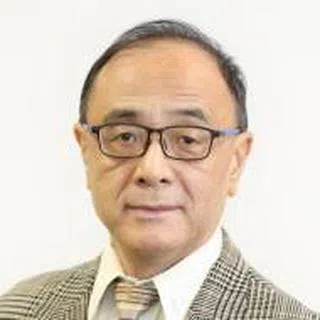Can Silicon Valley offer Chinese socialism a window into the future?
EAI senior research fellow Lance Gore believes that a new wave of socialist realism is surfacing from the capitalists of Silicon Valley, the bastion of capitalism. This form of socialist realism is characterised by a complete rejection of the old socialism and a belief in efficiency as the source of common prosperity. China can learn from Silicon Valley socialism; it is high time for China to shift into new socialism based on China's realities under the guidance of "first principles".

In the West, people associate the word "socialism" with two different images: the global image is of old socialism, which is characterised by authoritarianism, corruption, inefficiency and a lack of innovation, i.e., the praxis of the Stalinist lineage of "communist states", and the domestic image is of the leftist programme of big government, high taxes and high welfare. Common to both is the restriction of freedom by big governments driven by idealism.
The leftists of the West tend to be intellectual elites, many of whom have attended expensive private schools. They are angry at how things are going in society and lack a sense of humour.
Tesla CEO Elon Musk posted on X, "How many socialists does it take to screw in a lightbulb?" He paid high tuition fees for his daughter, who went on to become a communist and distanced herself from her father, the great capitalist. Such utopianism is also rather prominent in China.
A promising 'alternative' socialism
But where did China's socialism come from?
According to the Chinese Communist Party (CCP), it is the conclusion of history, the choice of the people. But this confuses the two concepts of revolution and construction.
The success of the CCP is mainly having followed the example of Russia. It was the October Revolution's successful model and effective form of organisation that had enabled the party to achieve revolutionary success. The building of socialism, however, is a different matter.
Karl Marx's communism was a conclusion drawn from the capitalist realities of his time. It had nothing to do with China's "semi-colonial, semi-feudal" circumstances and has always existed as a "grand ideal" in the hundred-year history of the CCP.
Unfortunately, with the failure of the Stalinist model of construction and the introduction of the market economy, it became nearly impossible to define socialism, so it is now brusquely defined as "the Communist party's leadership".
... the new wave comes forth, surprisingly, from among the capitalists of Silicon Valley, the bastion of capitalism.

The communist phantom has hovered over the nation for so long, yet it has never been able to set foot on Chinese soil because it is not based on the country's realities.
While the CCP often touts the superiority of its system in terms of "doing great things with concentrated power" (集中力量办大事), it falls short of providing a comprehensive solution to corruption and power abuses. Because of its return to orthodoxy, the West now thinks that "our ways are so different that it's impossible to work together", and as a result, it has shaped its China policy on this belief.
Socialism with vitality is one born out of reality, rather than ideals. In developed capitalist countries, there is big-government socialist idealism like what Bernie Sanders espouses, but its influence is waning. It is socialist realism that is on the rise in the West.
But since the realities of capitalism today are completely different from those in Marx's time, it is not emerging from any workers' movement. Instead, the new wave comes forth, surprisingly, from among the capitalists of Silicon Valley, the bastion of capitalism.
While Marx argued that surplus value is the source of exploitation, Musk claims that exploitation stems from power.
Features of 'Silicon Valley socialism'
The strongest supporters of universal basic income (UBI) are in Silicon Valley. People like Musk, Bill Gates, Mark Zuckerberg, Sam Altman and Jack Dorsey have on various occasions described themselves as socialists. Geoffrey Hinton, the godfather of artificial intelligence (AI) who opposes the private ownership of the media and of the means of computation, also claims to be a socialist. Singapore's Lee Kuan Yew spoke of his way as a combination of socialism and liberalism - in other words, a combination of ideals and reality, so the result is socialist realism. Socialist realism is the common denominator in this whole variety of "alternative" socialism, which is also the most promising kind.
Generally speaking, the features of "Silicon Valley socialism" include the following:
Complete rejection of the old socialism
Elon Musk once criticised the Western left for "pretending to do good, while actually causing harm". Old socialism is guilty of the same. The Great Leap Forward, for example, was a terrible consequence that came from good intentions. While Marx argued that surplus value is the source of exploitation, Musk claims that exploitation stems from power.

The South Africa-born billionaire is a fan of George Orwell. Orwell was a socialist himself, but he abhorred Stalinist socialism. His famous book 1984 was a profound exposé of the fascist nature of Stalin's totalitarian model, and Musk seems to have made 1984 part of his personal brand.
A belief in efficiency as the source of common prosperity
Musk has said, "I am actually a socialist. Just not the kind that shifts resources from most productive to least productive ... True socialism seeks [the] greatest good for all."
His ideas are similar to Pareto efficiency. Traditional socialists are often not too concerned with efficiency and think more about how resources are to be distributed. Musk holds the creation of wealth to be the precondition for common prosperity. When no wealth is created, there can only be common poverty. Therefore, efficiency comes first.
Silicon Valley socialism necessarily keeps the proven mechanisms of capitalism - competition, markets, free enterprise, innovation and creative invention. Contrary to Marx, however, Musk disagrees with the idea of trade unions, which he thinks sacrifice efficiency.
He discloses his company's source code, relinquishes patents and opposes copyrights, arguing that while these are good for individual and corporate profit-making, they hinder the widespread innovation and creative invention that would come with the dissemination of knowledge. He is against the banning of TikTok, even though it would benefit his company X.
Despite the foregoing, Musk is also a realist. At the World Governments Summit held in Dubai in February 2017, he pointed out that the pace of technological change was leading to a "massive social challenge". There will be less and less work that AI cannot do better than us. Policymakers should be concerned about the chain reaction from robots and AI taking jobs away from people. Musk thinks that humanity has no choice but to ultimately introduce some form of UBI.
Common prosperity is about better efficiency and innovativeness, not just to ensure that there is food on everyone's table and material blessings get shared all around. The original intent of a UBI is to relieve people from the heavy burden of supporting their families, from the fate of being wage earners enslaved by the need to pay for their housing, cars and children, or by the 996 work culture, as well as from jobs they do not want and yet have to work in.

The idea is to give people the opportunity to do the things they would like to do and are good at, or must do, such as innovating, creative undertakings, entrepreneurship, striving to be top performers in various professions and industries, taking care of the elderly and the sick, and educating the next generation. Musk believes that UBI would allow more people to pursue their passions, thereby bringing great benefits to society.
This is actually the realistic path of "the ascent of man from the kingdom of necessity to the kingdom of freedom" as envisioned by Marx and Friedrich Engels.
As long as productivity continues to develop, almost everything will be made greatly abundant and become very cheap with the help of AI, thus laying the material foundation for common prosperity.
Jack Ma, one of the pioneers of China's new socialism, is also keenly aware of this significant trend in the new technological revolution. As long as productivity continues to develop, almost everything will be made greatly abundant and become very cheap with the help of AI, thus laying the material foundation for common prosperity. High taxes and high welfare, on the other hand, would just be killing the chickens for the eggs.
Let us not forget that the slogan "Prioritise efficiency and ensure fairness too" was already put forth back in the early days of China's economic reform and opening up. Unfortunately, as "common prosperity" is being brought up again in more recent times, the impulse to rob the rich to give to the poor can be seen almost everywhere, especially within the party that has armed itself with Marxism-Leninism and Mao Zedong Thought. The "new rich" (先富阶层) lives in constant fear and trepidation as a result.
Socialist realism
Specific forms of socialism should not be deduced from grand theoretical narratives, but developed from the actual issues of reality. And that is precisely how Silicon Valley socialism comes about.

Musk's realism is mostly embodied in his "first principles" method of thinking, which casts aside the disruptive noises of ideology and political correctness to go straight to the heart of the matter. This leads him to often express opinions that stand out from those of others.
In addition to advocating a UBI, he was one of the first to warn against the dangers of AI. He co-founded OpenAI with Altman, hoping to blaze a path of non-commercialisation in the development of AI, so as to provide expansive benefits for humankind. Musk supports the global joint efforts to deal with climate change, which was why he left the Trump administration's advisory councils in protest of Donald Trump's withdrawal from the Paris Agreement.
He warns against population collapse, contrary to the accepted view about population explosion. He also backs the taxing of carbon emissions, opposes government subsidies, and has criticised short selling, Covid-19 lockdowns and trade unions. He holds an outlier view on the matters of the Taiwan Strait and the war in Ukraine. Even though Musk is a staunch supporter of freedom of speech, he does not take the absolute standpoint of the politically correct. Instead, he gives consideration to innovation, social vitality and social justice.
Few people in China have realised that the meaning of life will become a tremendous social problem.
In addition, Musk's realism is also demonstrated by how he handles his own pay uncompromisingly. Despite the astronomical figure of his income, he announced in 2020 that he "will own no house". Instead, he lives in a US$50,000 prefabricated home rented from SpaceX, claiming that the money he makes is for investing in the future of humankind. Indeed, all of his entrepreneurial endeavours revolve around solving humanity's pressing problems.
On the environment and lifestyle front, Musk developed the Tesla electric cars and helped boost Boxabl's US$50,000 prefabricated homes. He co-founded a company with his cousin for installing home rooftop solar systems. He actively invested in the development of large-scale energy-storage batteries to address the problem of excessive fluctuations in wind and solar power generation. His Mars project stemmed from his vision of humanity as multi-planetary species as insurance for its survival.

Musk is keenly aware that the question of the meaning of life would become greatly problematic for the post-affluent human society, especially after AI has put numerous people out of work in the traditional sense. Zuckerberg has also said that success should not be measured in terms of salary or GDP, but in terms of the role and contributions of each individual in society.
The viewpoints of these people are akin to Marx's critique of capitalist alienation. Few people in China have realised that the meaning of life will become a tremendous social problem.
It is high time for China to derive Chinese socialist realism from China's realities under the guidance of "first principles".
What is to be done?
While Marx's idea of communism was developed from the reality of the most advanced capitalism of his time, China's socialism fell from the sky, so to speak, as evident at least from the fuzziness of its target model and the resultant confusion of thought.
After it was transplanted to the country under "semi-feudal, semi-colonial" conditions, it has always remained either a dogma or a "grand ideal", such that Chinese socialism has never been able to free itself from political wavering and a utopian quality.
It is high time for China to derive Chinese socialist realism from China's realities under the guidance of "first principles". China's realities are very close to those of American capitalism, at least on an economic basis. The main problems faced by China are almost identical to those of the capitalist countries. Furthermore, Silicon Valley socialism is not some "grand ideal", but unfolding here and now. Hence, its immense significance for China as an exemplar to learn from is clear as day.
China is still robustly positioned to engage in down-to-earth socialism. Musk has high praises for China's enormous achievements. He sees China as the only formidable rival to the US in the critical domains of AI, new energy, semiconductors and astronautics. Tesla was the only foreign automaker to sign a pledge to uphold "core socialist values" at an automotive industry conference in Shanghai last July.
China's institutions, property rights structure, as well as its capacity for decision-making, execution, long-term planning and situational responses offer possibilities not available in the capitalist system. They make China uniquely advantaged to maintain social stability and security, and to organise and coordinate large-scale transformations. Such strengths are invaluable in the current turbulent world that is undergoing the momentous upheavals of a century.
Having said that, China is most likely to lose out to the US in terms of dynamism and the capacity for innovation, especially after a whole decade of centralisation of power as well as "strictly governing the party comprehensively".
This weakness calls for learning from Silicon Valley socialism, which has emerged from the epicentre of capitalist dynamism, to cast off the shackles of the old socialism, actualise a new liberation of thought, and shift into the new socialism.
This article was first published in Lianhe Zaobao as "硅谷的社会主义现实主义".





